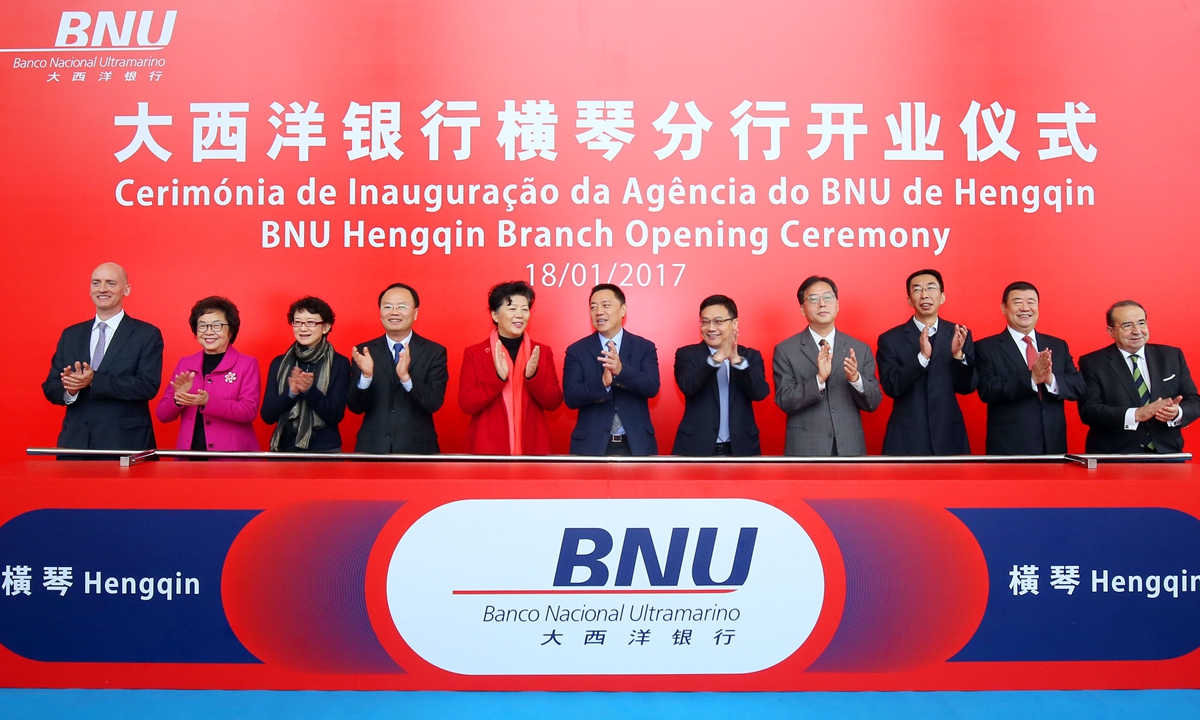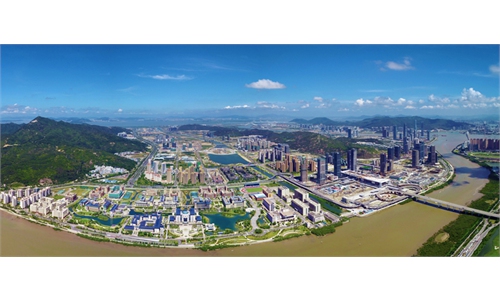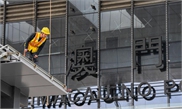
The opening ceremony of BNU's Hengqin Branch on January 18, 2017 Photo: Courtesy of BNU
There's a good chance that Macao is set to rise as a regional financial hub, a local bank executive said on Monday, expecting a recently announced backstop plan for the special administrative region (SAR) to pave the way for its financial takeoff on the basis of closer financial service tie-up with the Chinese mainland.
Macao, which is in urgent need of a new road map for growth as the coronavirus outbreak exposes its economic weakness, could achieve a long-held diversification ambition on its rise to prominence in the financial sphere, as an in-depth cooperation zone being built on its neighboring Hengqin island could underpin Macao's financial rise, Raymond Fong, general manger of the Hengqin Branch of Banco Nacional Ultramarino (BNU), told the Global Times in an exclusive interview.
BNU, a Macao-based bank tracing its history to the late 19th century when it was established in Lisbon, set up its Hengqin outlet in January 2017.
Finance-related propositions are among the highlights of a general plan unveiled in early September for building a Guangdong-Macao in-depth cooperation zone in the island, which is located in the southern part of Zhuhai in South China's Guangdong Province.
The zone eyes the establishment of a financial services platform connecting China and Portuguese-speaking nations, endorses the rollout of cross-border yuan settlement services, and plans to lower the thresholds for Macao-funded financial institutions to create banking and insurance institutions, among wide-ranging plans to push for courageous innovation.
Apart from tourism, the financial sector already makes up a big part of Macao's GDP, although the city's economy remains heavily reliant on its gambling-centric tourism expertise. Therefore, the financial sector seems the best choice for Macao to diversify away from tourism, which has been hit hard by the pandemic, Fong said.
He pointed to the new plan to turn the city into a regional financial epicenter, complementing the existing strengths of Hong Kong and Shenzhen - the two financial pillars of the Greater Bay Area.
With the in-depth cooperation zone exploring a new foreign debt management regime as part of efforts to facilitate cross-border financing, it will be easier for Portuguese-speaking nations to issue bonds in Macao, Fong said, and Macao-funded businesses operating in the zone will likely have access to lower-cost funding.
Macao, where financial offerings have primarily focused on traditional banking services such as deposits, loans and credit cards, is barely on par with its two nearby cities, notably Hong Kong, in terms of the size of the financial sector or its sophistication, according to Fong, a Macao native.
Nonetheless, a closer tie-up with the mainland could fill the gaps, and not merely in talent terms, the bank executive said. More bond issues by local governments on the mainland and the greater accessibility to mainland businesses, such as financial leasing, for Macao financial institutions to fast-track the SAR's rise as a regional financial hub could also be included, he said.
In a fresh instance of Macao-bound bond issuance, Guangdong's finance department announced on Friday it would issue 2.2 billion yuan ($340.43 million) worth of offshore yuan-denominated local government bonds in Macao in October.



